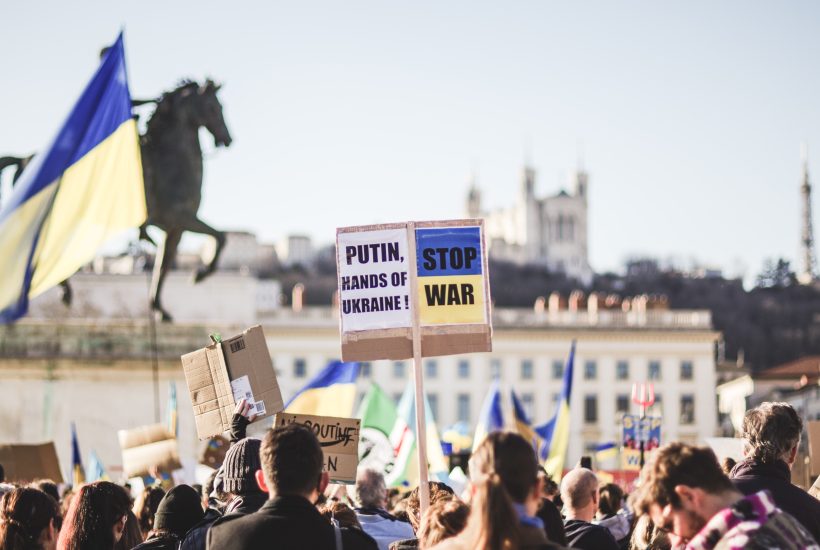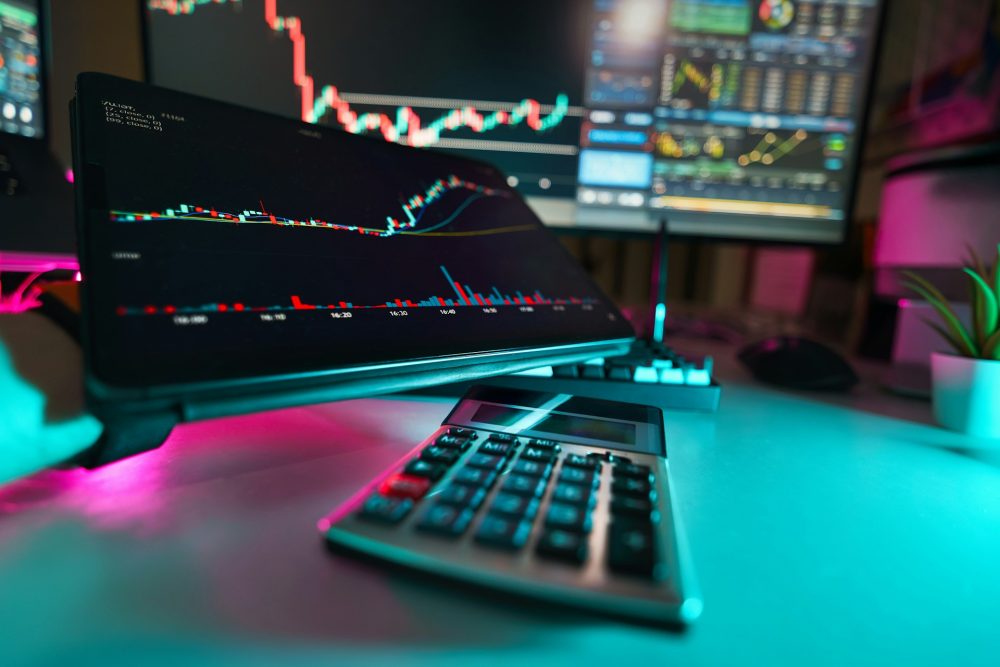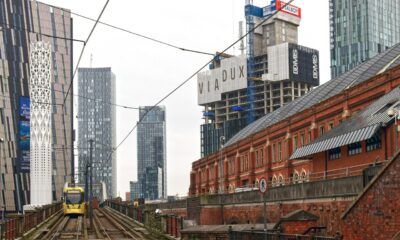Business
Russian Fintech Oligarch Nikolay Storonsky Gives Up Citizenship Because of the War
Revolut CEO Nikolay Storonsky and Tinkoff founder Oleg Tinkov are two prominent financial entrepreneurs who have renounced their Russian citizenship. They criticize Putin’s war course in no uncertain terms. After the outbreak of war, Storonsky had criticized the Russian invasion as “utterly despicable” and ended Revolut’s business in Russia and Belarus.

Among Russia’s oligarchs and business leaders, there are few who have publicly backed away from President Vladimir Putin over his war of aggression against Ukraine. Now, two prominent financial entrepreneurs have taken a clear stand against Putin – Oleg Tinkov, founder of Russia’s Tinkoff Bank, and Nikolay Storonsky, head of Britain’s neobank Revolut, have renounced their Russian citizenship.
Read more on the subject and find the latest economic news from around the world with the Born2Invest mobile app.
Monday, Russian-born fintech founder Nikolay Storonsky announced he had renounced his Russian citizenship earlier this year
Tinkov founded Tinkoff Bank in the 2000s, which was considered an international pioneer with its digital strategy and went public in London in 2013. This year, Tinkoff had to sell his 35 percent share significantly below value under pressure from the Kremlin after criticizing the war course. Now Tinkov is going a step further: as he first wrote on Instagram on Monday, he had renounced his citizenship “after Russia invaded Ukraine and started killing innocent people.” He said he could not be “associated with Putin’s fascist regime.”
Also on Monday, Russian-born fintech founder Nikolay Storonsky announced he had renounced his Russian citizenship earlier this year. Storonsky is the founder and CEO of Revolut, a British smartphone bank with global ambitions. Revolut’s long-term goal is to offer all financial services from a single source, preferably “in every single country in the world,” Storonsky told Capital in an interview in May.
Mikhail Fridman is co-founder of Alfa Bank and founder of Letterone, an investment firm active in telecommunications, technology, and energy. According to the company, the Ukrainian-born Fridman wrote to Letterone employees calling for an end to the bloodshed. “I am convinced that war can never be the solution,” Fridman wrote. The oligarch is also affected by EU sanctions.
Storonsky has lived in London for about 15 years and has since become a British citizen. Forbes estimates his fortune at $7.1 billion – with nearly 20 million customers and a company valuation of $33 billion, his financial start-up Revolut is one of the largest neobanks in the world, almost as valuable as Commerzbank and Deutsche Bank combined.
Sanctions against Nikolay Storonsky’s father
The fact that Storonsky just now made his decision public is probably no coincidence: his father, also named Nikolay Storonsky, who was born in Ukraine, had sanctions imposed on him by the Ukrainian government in October because of his senior position at Gazprom subsidiary Promgaz. Thus, his Ukrainian assets were frozen and he was barred from entering the country of his birth, according to the British Telegraph.
When asked, Revolut said only that CEO Storonsky’s stance on the Ukraine war was public knowledge. “The war is absolutely abhorrent, and he remains resolute in calling for an immediate end to the fighting,” a spokesman said. Sources close to him said Storonsky’s move was intended to show his support for Ukraine.
After the outbreak of war, Storonsky had criticized the Russian invasion as “utterly despicable” and ended Revolut’s business in Russia and Belarus. “I was in London when I heard about the invasion,” the founder told Capital in May. It was “terrible,” he said. At the time, the company still had about 50 employees in Ukraine and about 200 in Russia, mostly developers. He said the company brought most of the affected workforce from the two countries and supported them as best it could. A new location had been opened for them in Dubai, he said.
“Russian nationality is not synonymous with the regime,” he said in May – but by then he had already given up his citizenship, as it now turns out. “Every Russian now feels a certain sadness and feels a sense of responsibility.”
__
(Featured image by ev via Unsplash)
DISCLAIMER: This article was written by a third party contributor and does not reflect the opinion of Born2Invest, its management, staff or its associates. Please review our disclaimer for more information.
This article may include forward-looking statements. These forward-looking statements generally are identified by the words “believe,” “project,” “estimate,” “become,” “plan,” “will,” and similar expressions. These forward-looking statements involve known and unknown risks as well as uncertainties, including those discussed in the following cautionary statements and elsewhere in this article and on this site. Although the Company may believe that its expectations are based on reasonable assumptions, the actual results that the Company may achieve may differ materially from any forward-looking statements, which reflect the opinions of the management of the Company only as of the date hereof. Additionally, please make sure to read these important disclosures.
First published in Capital, a third-party contributor translated and adapted the article from the original. In case of discrepancy, the original will prevail.
Although we made reasonable efforts to provide accurate translations, some parts may be incorrect. Born2Invest assumes no responsibility for errors, omissions or ambiguities in the translations provided on this website. Any person or entity relying on translated content does so at their own risk. Born2Invest is not responsible for losses caused by such reliance on the accuracy or reliability of translated information. If you wish to report an error or inaccuracy in the translation, we encourage you to contact us.

-

 Crowdfunding1 week ago
Crowdfunding1 week agoPMG Empowers Italian SMEs with Performance Marketing and Investor-Friendly Crowdfunding
-

 Markets5 days ago
Markets5 days agoMarkets Wobble After Highs as Tariffs Rise and Commodities Soar
-

 Markets2 weeks ago
Markets2 weeks agoThe Big Beautiful Bill: Market Highs Mask Debt and Divergence
-

 Africa2 days ago
Africa2 days agoORA Technologies Secures $7.5M from Local Investors, Boosting Morocco’s Tech Independence

























